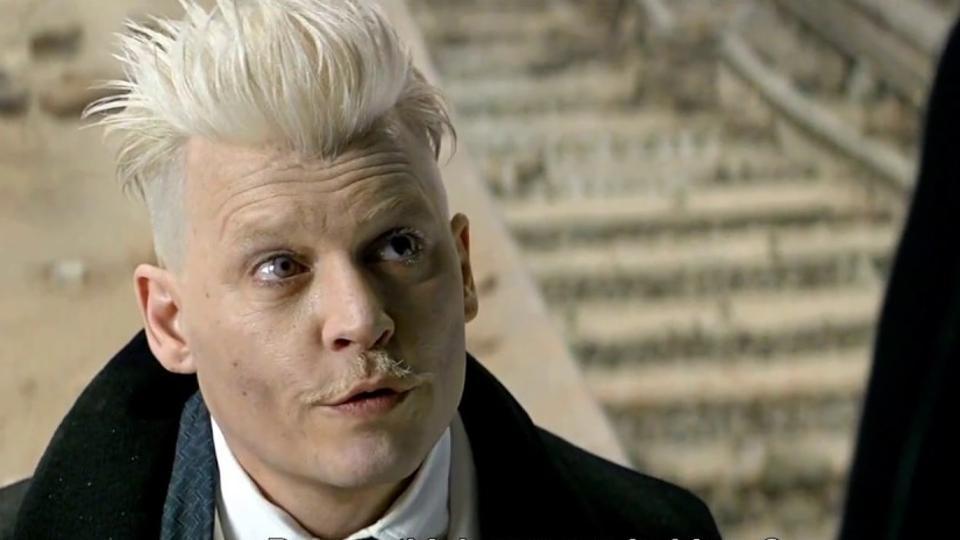Let's Read The Kingkiller Chronicle pt. 11: Mo' Money, Mo' Talents
It's finally time for Kvothe to leave Tarbean and get the real story (such as it is) rolling. After hearing Skarpi's tale of Haliax and the Chandrian, Kvothe's "sleeping mind" finally wakes up, and he resolves to track down stories of the Amyr to see if they might hold the key to defeating the Chandrian.
“The Chandrian had enemies. If I could find them, they would help me. I had no idea who the singers or the Sithe were, but everyone knew that the Amyr were church knights, the strong right hand of the Aturan Empire. Unfortunately, everyone also knew that there had been no Amyr in three hundred years. They had been disbanded when the Aturan Empire collapsed.”
I've harped on this multiple times already, but I'll say it once more: if you forget all this nonsense about Kvothe's mind being "asleep" and lift the Tarebean section out of the narrative entirely, this could easily be taking place days after the attack on Kvothe's troupe, rather than years. You'd have to explain an alternate means of Kvothe hearing the Haliax stories, but we've already been given a suitable candidate: Kvothe's father was a story-teller, and he was collecting information about the Chandrian. This could have been the story that drew their attention.
“The more I thought on it, the more questions arose. The Chandrian obviously didn’t kill everyone who gathered stories or sang songs about them. Everyone knew a story or two about them, and every child at one point has sung the silly rhyme about their signs. What made my parent’s song so different?”
"And then Kvothe went to the University and lots of other places in search of answers, but he didn't find them."
I've just summarized the rest of the book and the entirety of The Wise Man's Fear.
Saltiness aside, the next part of the story is actually quite good. Kvothe decides to gain admission to the University so he can search its great library, but this presents a number of challenges since he's penniless, dressed in rags and has no family or connections. Over the course of the next few chapters, he uses a combination of trickery, guile, street smarts and his natural intelligence to bluff and talk his way into a relatively secure position as a student, just barely overcoming every obstacle that the world throws in his way.
And it's all pretty fun! It's almost like--and stop me if this is too out there--having a protagonist with clearly-defined goals, who takes active measures to achieve them, makes your story more compelling and interesting.
Kvothe's first problem is a lack of cash, so he goes to a book shop to sell Ben's book of logic. The owner assumes he's illiterate and tries to trick him with a fake receipt, but our boy Kvothe is having none of that and manages to both get a good price for the book, and counter-trick the owner into giving him the option to buy it back for significantly less than he got for it. Classic Kvothe!
I know this is part of the book I'm quite positive about, but I want to go on a brief tangent about an element of qorld-building that really doesn't work: money.
Kvothe receives two silver talents for Ben's book. Over the course of the story, "a silver talent" is frequently given as the value of various goods and services, but the actual value of a talent seems to fluctuate wildly from chapter to chapter. For example, later on Kvothe's accommodation and meals for a whole term at the University costs a talent, but here he got two talents for selling a single book. Either it's an incredibly valuable book, or the cost of University accommodation is ridiculously cheap.
And then later still, Kvothe auditions for semi-professional status at a famous music venue, and has to pay a talent for the privilege of doing so. If a second-hand book costs two talents, then this isn't all that expensive; if University room and board for a whole term costs one talent, then it seems like a much more extravagant fee. Since both of those facts are apparently true, this leaves us with no objective comparison to determine how cheap or expensive anything actually is.
This becomes a big problem, because huge whacks of both books are taken up with Kvothe running out of money and engaging in various zany schemes to get more. But since we can't determine how much a talent is actually worth, that makes it nearly impossible to tell how dire Kvothe's situation really is, or how much he's pulled himself out of a hole with his latest money-making endeavour.
(In the next chapter, a pair of good shoes also costs a talent; most of the things Kvothe buys seem to cost that much, or close to it)
“I decided that he was not an altogether bad fellow. I smiled back at him and for a second I almost felt guilty about how I’d written the receipt.
I also felt guilty about the three pens I’d stolen, but only for a second. And since there was no convenient way to give them back, I stole a bottle of ink before I left.”
That's pretty funny. I enjoy fun-adventure-Rothfuss a lot more than angsty-grimdark-Rothfuss.
Kvothe's next problem is that he needs clean clothes. He does some chores at an inn in return for a bath, and an idea occurs to him:
“I wiped the fog from the makeshift mirror and was surprised. I looked old, older at any rate. Not only that, I looked like some young noble’s son. My face was lean and fair. My hair needed a bit of a trim, but was shoulder-length and straight, as was the current fashion. The only thing missing was a noble’s clothes.”
I find this kind of hard to believe. Malnourishment and illness should have taken a toll on him, not to mention all those times he got beaten around the head--he'd probably have scars, if not a broken nose. People who've been living rough for a long time often look visibly unhealthy and worse for wear, but here Kvothe just has to wash himself and he can suddenly pass for a member of the rich aristocracy.
That said, the way he finagles some clothes out of a shop is pretty good: by marching down the street wearing nothing but a towel, and then feeding the shop-keeper a story about his buddies playing a prank on him. Kvothe's narration claims that he uses his acting chops to make himself seem like a spoiled, entitled little ass, but that probably just comes to him naturally.
“I lowered my voice menacingly, “If you don’t bring me something to wear-” I stood up and shouted, “-I’ll tear this place apart! I’ll ask my father for your stones as a Midwinter gift. I’ll have his dogs mount your dead corpse. DO YOU HAVE ANY IDEA WHO I AM?””
Our hero is now clothed, fed and has a small amount of money, so it's off to the University. First he has to get there, and during the journey he meets a very important character...but I'm going to skip over that for now, because I want to discuss that character entirely in one long post rather than tackle every appearance she makes in chronological order (the reason for this will become apparent in due course). Next time, we'll pick up with Kvothe's arrival at the University.




